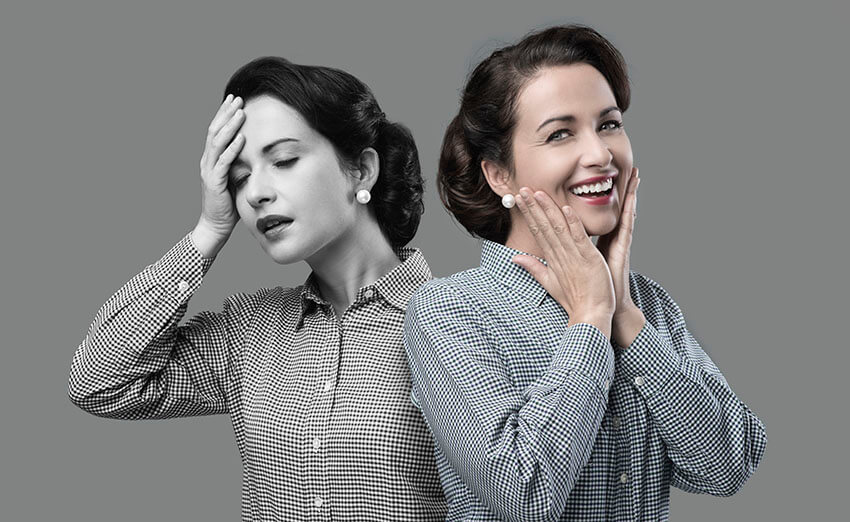We all have a primary and a secondary gain. Our primary gain is a positive internal motivation and our secondary gain is a positive external motivation.
A perfect one that I can relate to is feeling guilty that I can’t perform a certain task because of a medical condition, such as a ‘tennis elbow’. It justifies my inability, which, of course, would diminish my guilt.
I don’t even play tennis. But it’s true, I have tennis elbow. I have since found out from a Metaphysical Psychological point of view that it is emotionally driven.
My elbow problem is related to feeling indecisive and not knowing whether to leave or continue a project because of feeling obligated to see it through. My loyalty and devotion are holding me back.
Don’t you ever wonder why some people always get sick? Research now shows us that many individuals who are frequently sick are doing it for a secondary gain. It could be as simple as the need to get attention, or the desire to do nothing without feeling guilty, or the fear of responsibility… the list is extensive.
If you look into Metaphysical Psychology, every illness, every disease and every time we are sick there is a purpose and a deeper unconscious driver. A secondary gain is when a person has a hidden reason for holding on to an undesirable condition. It’s sometimes hard to pinpoint because it’s not conscious.
The fact that it’s unconscious is obvious because the loss of holding on to the condition is often far greater than the perceived gain.
Secondary gains are the benefits from NOT overcoming an emotional issue
The beauty in understanding your secondary gain is that it can greatly contribute to your healing. Whether attention in the form of monetary compensation or just the need to deny the original cause of the pain, our secondary gains can often be found hidden in our habits.
A habit is a pattern of action that has been acquired over time. It has been repeated so often that it has become automatic. A habit also has unconscious behaviours attached to it. In other words, you aren’t necessarily aware that you are doing it.
If you want to change a habit, it is extremely important to understand the drivers behind it.
The three elements to identify your drivers are:
- What is the purpose of your habit?
- What is the payoff of your habit?
- What is the secondary gain?
In most types of therapy, ‘secondary gain’ is the term given to the reason we choose to stay ‘stuck’.
Secondary gains serve a purpose that meet a need
Many years ago, I worked with a lady named Jane who came to see me about wanting to break free of her resistance to change. She had severe procrastination with anything and everything she wanted to do for herself. In order to help her, I needed to understand the purpose, payoff and any secondary gains of this habit.
As Jane’s story unfolded, several aspects became very clear. Jane had had an accident some years previously. Since this accident, she had been getting a lot of help from family and friends.
Despite the fact that she no longer needed as much help and could live independently, she still desperately wanted the attention and connection with people. This is not an uncommon driver. It’s a basic human need. However, in Jane’s case, she was dependent on it in an unhealthy way.
As a result of the accident, Jane had also been receiving some financial compensation. In terms of her procrastination, the payoff was that she could sleep in and do whatever she wanted because she didn’t have to hold down an ordinary job. The secondary gain was receiving regular money for not much output, in the form of monthly payments.
At the time she came to see me, she had just started her own business. Still, she was afraid to give it too much of her time and attention in case it became successful and she would lose her monthly payments.
While this stipend provided her with a sense of security, it also acted as a trap – stopping her from moving forward on her own.
What’s the payoff?
By identifying these drivers, I was able to help Jane shift from a place of dependence to one of independence. In doing so, together we created a mindset of abundance for her, as well as a strong purpose of freedom.
Then, for the next 21 days, every time Jane felt the need to procrastinate, she focused on abundance and freedom instead. It took her 21 days to break free of that old bad habit and, when she did, she felt in control and happy that her life was not being influenced by external circumstances.
The secondary gain was that Jane was making twice the amount of money than her previous monthly payments. Additionally, her friends and family were jumping at the chance to help her, as they were so very excited to see her succeeding in her business.
Jane’s story is wonderfully inspiring, but it’s not an isolated case.
Now, it’s your turn.
To find out your secondary gain or payoff, ask yourself the below questions.
- What is it costing me to stay sick?
- How will I benefit from getting better?
- How am I going to feel when I get better?
- What will change for me when I am well again?
Then you will truly begin to heal.





